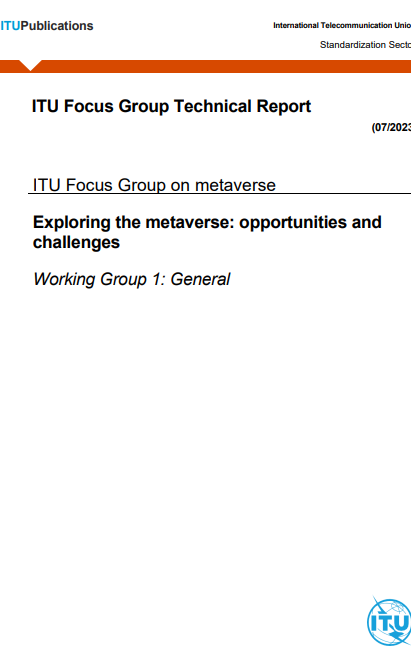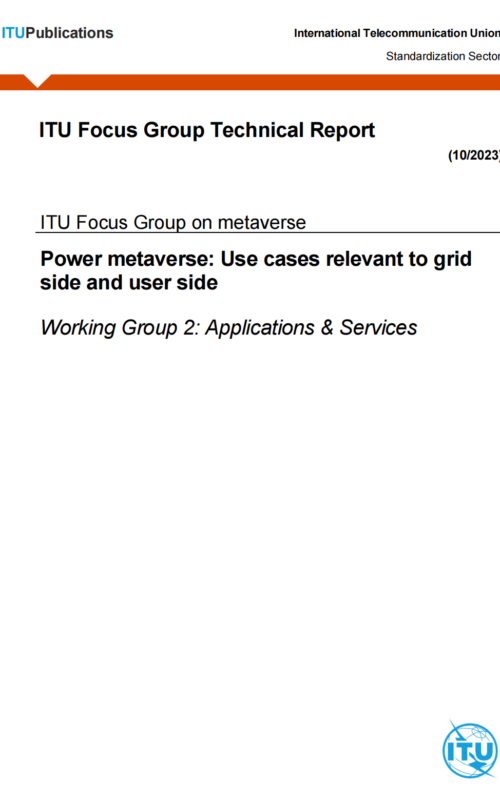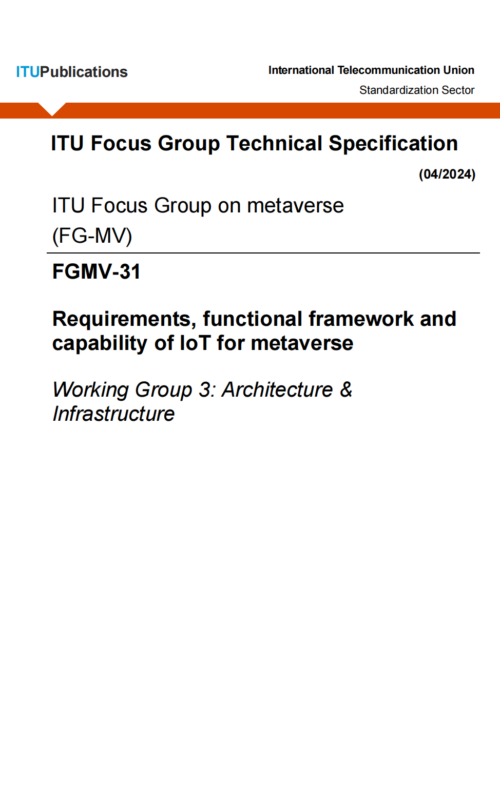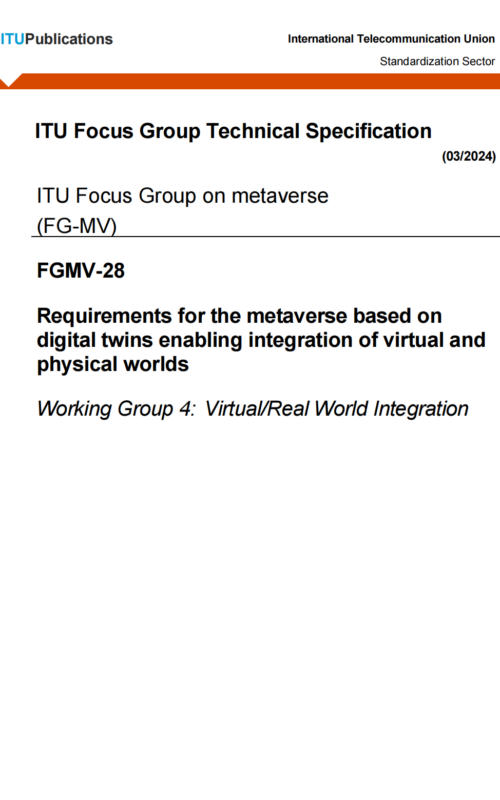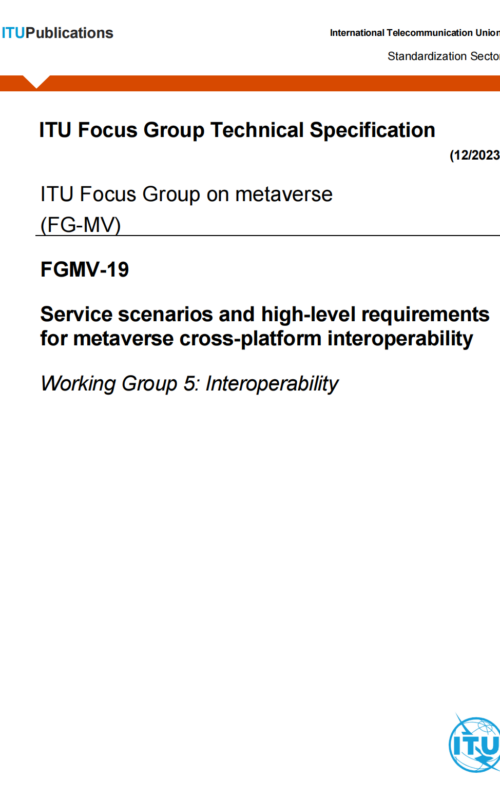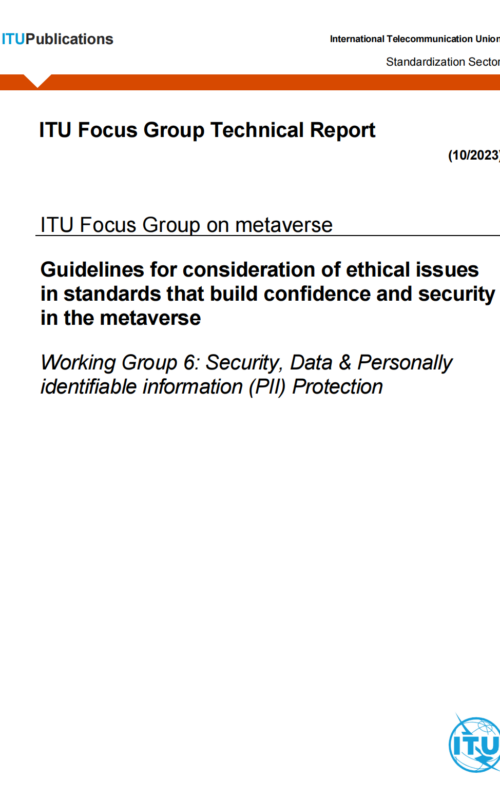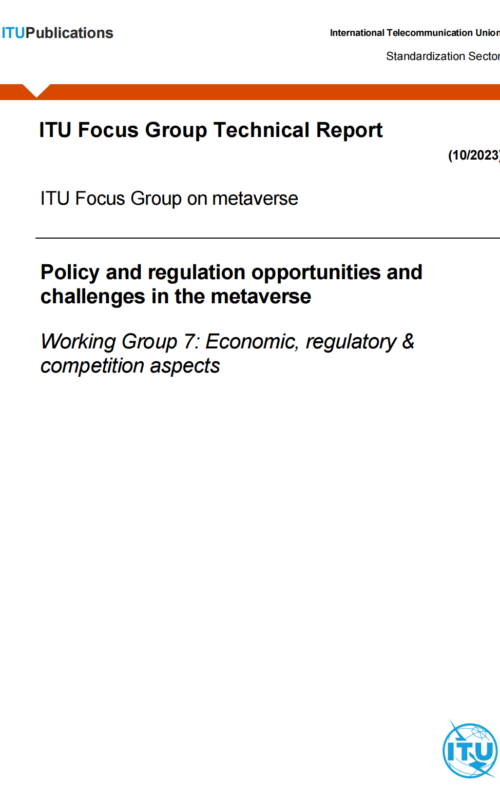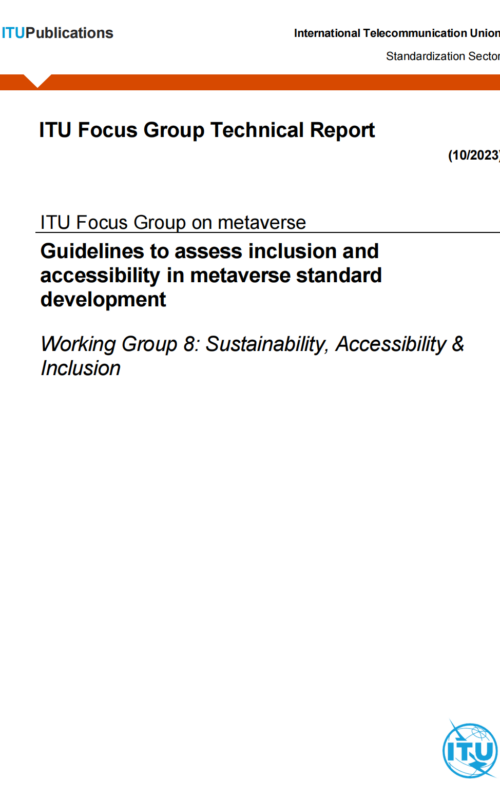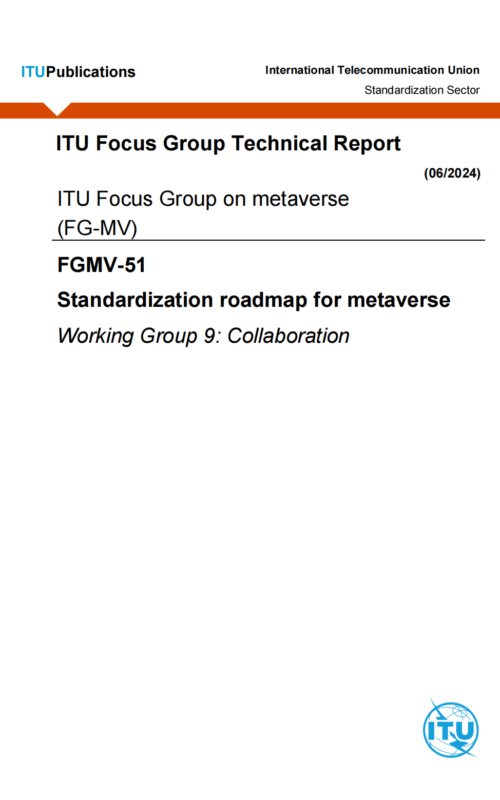Year of Impact – Focus Group on metaverse

Focus Group on metaverse
In 2024, the Focus Group on metaverse (FG-MV) concluded its work, delivering a wealth of knowledge and concrete outcomes that will shape future standards and innovations.
Focus Group on metaverse
The ITU Focus Group on metaverse was established in December 2022. The group analysed the technical requirements of the metaverse to identify fundamental enabling technologies in areas from multimedia and network optimization to digital currencies, Internet of Things, digital twins, and environmental sustainability. The FG-MV successfully concluded on 13 June 2024 marking a significant milestone.
Over the course of a year and a half, the group achieved an impressive feat by approving 52 Technical Reports and Technical Specifications.
The engaging forums and special sessions attracted a remarkable attendance of more than 17,000 participants.
Focus Group on metaverse in Numbers
155 e-Meetings Held
Throughout the initiative, Working Groups (WG) and Task Groups (TG) convened 155 times to drive progress. Check out the meeting documents here.
FG-MV Structure
FG-MV formed 9 Working Groups and 18 Task Groups. Learn more about the FG-MV workplan here.
Engaging Events
Witness the energy of 5 forums and 2 special sessions held with over 17,000 participants. Explore our meetings and events here.
52 Approved Deliverables
Dive deeper into the 52 approved Technical Reports and Specifications here.
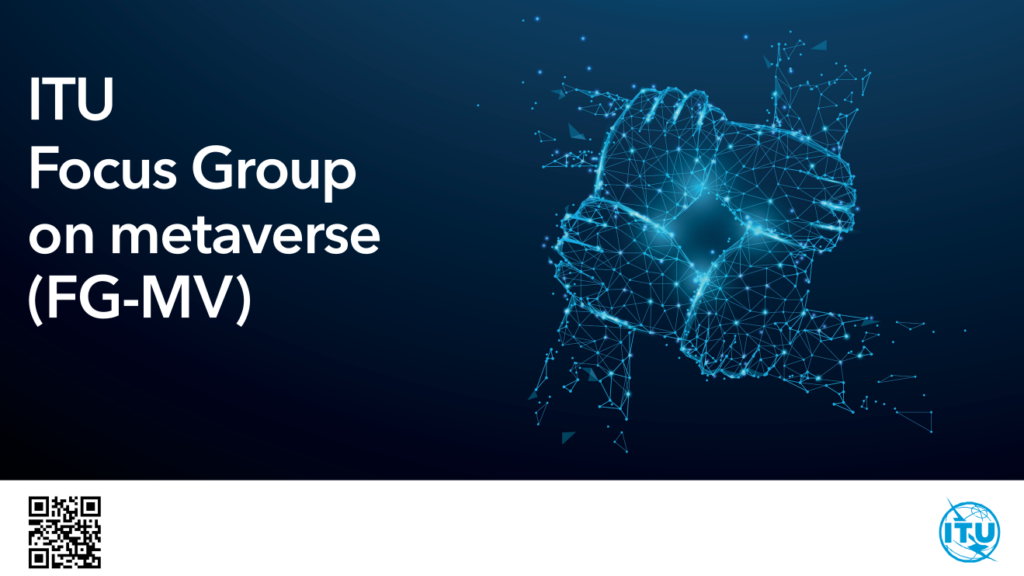
Defining the metaverse
FG-MV approved the definition of the metaverse, shaping its future.
Definition of metaverse: An integrative ecosystem of virtual worlds offering immersive experiences to users, that modify pre-existing and create new value from economic, environmental, social and cultural perspectives.
Management Team
FG-MV Chair

Shin-Gak Kang
ETRI, Korea (Rep. of)
FG-MV Vice-Chairs
Andrey Perez
Anatel, Brazil
Shane He
Nokia, Finland
Cristina Martinez
European Commission
Stella Kipsaita
Communications Authority, Kenya
Hideo Imanaka
NICT, Japan
Vincent Affleck
United Kingdom
Manuel Barreiro
Aston Group, Mexico
Natalia Bayona
World Tourism Organization (UN Tourism)
Per Fröjdh
Ericsson, Sweden
Yuntao Wang
CAICT, China
Leonidas Anthopoulos
University of Thessaly, Greece
